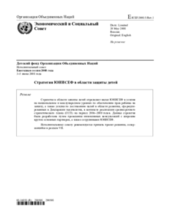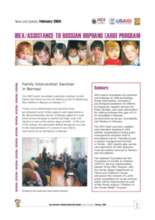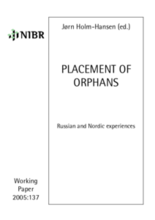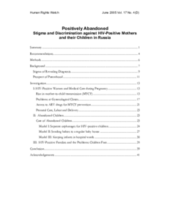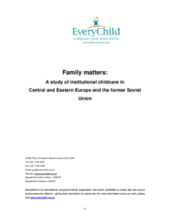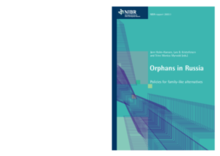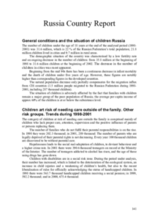Displaying 141 - 150 of 151
In this meta-analysis of 75 studies on more than 3,888 children in 19 different countries, the intellectual development of children living in children's homes (orphanages) was compared with that of children living with their (foster) families.
Outlines the contributions of UNICEF to national and international efforts to fulfil children’s right to protection
Update on all recent seminars and activities relevant to child welfare reform and deinstitutionalization in Russia
Examines the transition from residential care to family-based, community care models in five European / Eurasian countries.
The chapters in this Research Note are grouped in three sections. The first section (chapters 2–5) presents the international experiences. The second (chapters 6–7) presents the Russian background, whereas the third section (chapter 8–9) offers an updated presentation of Russian realities as to the placement of orphans.
This report provides baseline information on conditions in orphanages in the Russian Federation. This information addresses three major limitations in the literature on the development of children residing in substandard orphanages and those adopted from such environments.
Russia is home to one of the fastest-growing AIDS epidemics in the world, but the government has done little to address the problem.
A report discussing the advent and perpetuation of institutional care in Central and Eastern Europe and the Former Soviet Union prior to and since the end of the communist regime. It also provides examples of family-based care as models of care to substitute institutional care and offers recommendations to donors, NGOs and governments for child care reform based on their experience in CEE and FSU.
The objective of this research project is to contribute to the process of facilitating a more family-like childhood for Russian orphans.
Country report of Russia on the situation of children in residential care in anticipation of the Second International Conference on Children and Residential Care: New Strategies for a New Millennium, to be held in Stockholm 12 – 15 May 2003.

